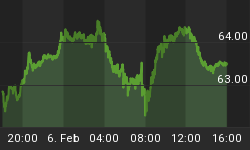Though caviar has long been synonymous with the palette of the wealthy who acquired the luxury food item predominately from Russia and Iran, both things have changed dramatically.
Today, the King of Caviar is China, and this “Made in China” delicacy is flooding the market to the point that prices are plunging, and the delicacy may become commonplace.
Whatever you wish to call it, caviar is fish eggs, and fish eggs are being bred in China in huge volumes.
Increasingly, fish eggs from wild female sturgeon are being obtained by Chinese fish farms at lower costs. In turn, that has led to an increase in China's total caviar exports by more than five times between 2012 and 2017, according to Wall Street Journal.
In a way, China stepped in to fill a void when the world risked the extinction of wild sturgeon in the 1990s. Cheap Chinese labor for new fish farms was the answer. Russia and Iran overfished their beluga sturgeon from the Caspian Sea, rendering them endangered
But the picture comes into clearer view when you consider that a single Chinese company, Kaluga Queen, produces a whopping one-third of all the world’s caviar. And it’s eyeing even greater market share. Kaluga Queen plans to increase output by up to 30 percent annually for at least the next five years.
The company is eyeing a sustained double-digit growth rate, with production reaching 100 tons in 2019, as it predicts growing potential in retail in the country. It’s also taking advantage of some other upside opportunities, including the sale of sturgeon fillets and skin for leather products.
So, Chinese caviar isn’t just for export …
According to China Daily, citing the China Sturgeon Association, the Chinese themselves will consume a projected 100 tons of caviar every year by 2020, accounting for one-third of the world's total.
China, then, is taking over the caviar market, buoyed by the cheapest offerings that are still said to be of the highest quality.
The “Made in China” label can be off-putting; and a series of food quality-control scandals involving bleach-soaked meat, antifreeze-laced apple juice, and pine nuts unsuitable for human consumption don’t bode well for reputation.
Still, despite the low level of trust in Chinese food, American caviar farmers are struggling to compete as China floods the market with ‘black gold’. Related: Federal Reserve Downgrades U.S. Growth And Cuts Rate Hikes
The U.S. imported $17.8 million worth of caviar in 2018--up from $7.6 million in 2014. About half of the 2018 imports came from China, forcing many American producers to drop their caviar prices by 25 percent to compete.
Perhaps it helps that Trump has added Chinese caviar to its 10-percent tariffs on Chinese seafood products, imposed in September 2018. But it’s not a cure-all.
Caviar imported into the U.S. last fall sold at an average $276.24 per kilogram, down 13 percent year-on-year; but at almost half what prices were in 2012.
The worldwide market for Caviar is expected to grow at a CAGR of roughly 5.8 percent over the next five years, reaching $500 million in 2024—up from $360 million currently, according to a new market forecast.
Iran, for its part, plans to keep trying to give China a run for its money. According to Iranian officials in August last year, exports of Iranian black caviar from Mazadaran province had tripled in the first three months of that Iranian calendar year.
By Josh Owens for Safehaven.com
















